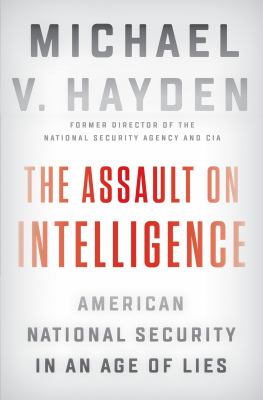

"The incoming team is focused on change. After all, they won and believe they have a mandate. The government they will inherit is focused on stability. After all, they believe they know how things are best done. That puts a great burden on the transition team - the body of folks loyal to the incoming administration, but wise and experienced in the ways of Washington - to build bridges to the outgoing administration as well as to those officials in the departments and agencies who aren't going anywhere. One veteran of the Trump transition drew a sketch on the back of a breakfast napkin to demonstrate to me the always large information gap between an incoming political/policy team and permanent institutions like the intelligence community. In normal circumstances, he said, there is enough trust (or at least a sufficient lack of hostility) for the two sides to get together, close the information gap, and in the process form the relationships needed to eventually assemble a national security team - always an amalgam of political/policy types and career professionals. Barack Obama pretty much campaigned in 2008 as not being George Bush, but his team gave Bush folks high marks for how they handed off the reins of government. And the incoming Obama team was populated by a legion of seasoned Washington hands who had been waiting eight years in the wilderness for this moment. It was a pretty smooth transition. Not so much in 2016. During the Republican primaries, Florida governor Jeb Bush predicted that Donald Trump would be a chaos president. It was certainly a chaos transition. First, there was good evidence that team Trump really didn't expect to have to come to work the day after the election. They certainly hadn't prepared to govern. Developing policy is usually done before the primaries kick off in Iowa. There is some time then to think a bit, to put some purpose to the campaign, even to identify key intellectual influencers. None of that happened with the Trump campaign. There is traditionally a second shot at this between the conventions and election day. There we normally see massive policy teams turning out papers on variety of issues. That didn't happen with the Trump campaign, either. Nada. Nothing. More than any other candidate in the modern era, Donald Trump ran on attitude, not policy. One intelligence senior said the incoming team was as weakly anchored on facts and on the artifacts of governance as any he had ever seen."
The Assault on Intelligence by Michael V. Hayden - 2018
"Former acting CIA director Mike Morell said that Putin had cleverly recruited Trump as an unwitting agent of the Russian Federation. I preferred another term drawn from the arcana of the Soviet era: polezni durak. That's the useful idiot, some naif, manipulated by Moscow, secretly held in contempt, but whose blind support is happily accepted and exploited. That's the term I used in the Washington Post the Friday before the election. I admitted that it was a pretty harsh characterization and conceded that Trump supporters would be offended, but offered that it was the most benign interpretation of all this that I could come up with. We didn't know it then, of course, but that now infamous June meeting at Trump Tower that has Jared Kushner, Donald Trump, Jr., and Manafort on one side and two Russian lawyers, an interpreter, and two representatives of the Agalarov family (the Russian fixers for the meeting) on the other perfectly fits the useful idiot scenario. The Trump team had accepted the meeting expecting Russian government dirt on Hillary Clinton. For veteran CIA case officers, the offer constituted a Russian soft approach, using people who did not have 'SVR' (Russian Foreign Intelligence Service) on their business cards, but whose historical connections to the Russian government were clear. That made the meeting easier to accept from the American side while allowing the Russians plausible deniability should they need that in the future. And the Russians accomplished several things with the session. First, the established the willingness of the Trump campaign to deal with the Russian government for dirt on Hillary Clinton. Second was confirming that the Trump campaign would not report such approaches and meetings to the U.S. government (otherwise they would have detected increased counterintelligence activity from the FBI.) Third, since the two Russian negotiators had made a career of fighting for sanctions relief, I think the Russians would have fairly assessed that the Trumps were open to that linkage. Finally, the Trump's accepting the meeting created a potential point of leverage on the campaign and the later administration. It was the first down payment on a bit of Russian kompromat, as it were."
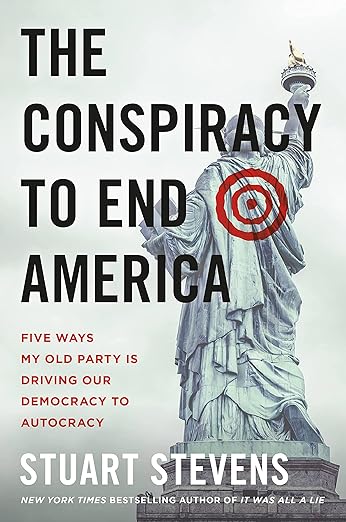

“(Peter) Thiel had long been a mentor to Mark Zuckerberg, who began Facebook at Harvard as Facemash, an online site where men could rate female classmates, a version of what was commonly known as a ‘Pig Book.’ Thiel was an original board member of Facebook and its first outside investor. As he developed a public image as an Obama-friendly supporter of immigration reform, ‘Zuckerberg had continued to rely on Thiel as a liaison to the American right. Thiel, according to Zuckerberg’s allies, was the company’s conservative conscience,’ (Max) Chafkin writes. ‘Zuckerberg’s critics saw Thiel’s influence on the company as more profound - and more pernicious. He was, in this view, the puppet master: pushing a younger, ideologically uncertain founder toward an alliance with an extremist wing of the Republican Party.’ That alliance was created on May 18, 2016. On that day, the political media’s attention was focused on Donald Trump’s big win the Oregon Republican primary, but it’s quite likely that the 2016 presidential election was actually decided on May 18 in a meeting at Facebook headquarters in Menlo Park, California. Responding to attacks from the right that Facebook was censoring conservative voices, Thiel facilitated a meeting of sixteen prominent right-wing figures, Zuckerberg, and himself. The gathering included Fox News’s Tucker Carlson and the loony Glenn Beck, the presidents of the Tea Party Patriots, the American Enterprise Institute, and the Heritage Foundation. Max Chafkin describes the outcome: ‘Facebook intended to allow supporters of Donald Trump, who was by then the de facto Republican nominee, to say more or less whatever they wanted on its platform. Over the next several months, misinformation on Facebook - much of it in Trump’s favor - outperformed real news. The most popular election headline on Facebook during that period, according to one study, was ‘Pope Francis Shocks the World, Endorses Donald Trump for President,’ which, of course, never happened. Another claimed falsely that Wikileaks emails revealed that Hillary Clinton had sold weapons to Islamic State terrorists.’”
“During the general-election campaign, I had spoken out against Trump, and each time I did, my phone would fill up with text messages from Republican elected officials and operatives thanking me. I didn’t want to be praised; I wanted them to join in speaking out. There was nothing I was doing that they couldn’t do but I got it. I knew how the game was played. After Trump had lost, they would all breathe a sigh of relief and say they were against him from the start. On election night 2016, I was on a PBS election-coverage panel with Judy Woodruff, and as I stared at the results in disbelief, I suddenly began to receive a flood of messages from those same Republicans asking me to delete their previous messages discussing the disaster that was Donald Trump. At first, I thought they were joking. But as I watched these same people profess their admiration for President-elect Trump in the days ahead, I was struck with a growing sense of sadness, disappointment, and anger. I felt sad and disappointed about the party for which I had worked for decades and the fellow Republicans I witnessed debasing themselves in lies. But the anger I felt was self-directed. How did I not see this before? I began to ask myself how I had so thoroughly misjudged many of my friends and our party. The question of why I did not see it earlier was always accompanied by a larger and looming question. Why had I not done more to stop it? As much as I would like to deny it, I now understand there is a direct line between the election night I celebrated in 2000 and the night I mourned in 2016. It is difficult to imagine two more different men than George W. Bush and Donald Trump. Bush’s 2000 acceptance speech at the Republican National Convention reads like an artifact from a lost civilization. It’s a plea for optimism, hope, and compassion. That candidate has no place in the Republican Party of 2023. But as different as Bush and Trump are, the Supreme Court’s role in the 2000 presidential election proved to be a model for the slow-burning legal assault on our democracy that roared to a forest fire when Donald Trump refused to accept the outcome of the 2020 election. To Trump and his supporters, which included a large majority of the Republican members of the House of Representatives, the 2000 election was a gateway drug to their efforts to steal the 2020 election. Once the outcome of a presidential race is decided in court and not at the ballot box, it’s logical to view the legal system as an extension of a campaign, rather than the foundation upon which civil society is built.”
The Conspiracy to End America by Stuart Stevens - 2023
Insurgency by Jeremy W. Peters - 2022
"Anti-Trump voices were disappearing from the conservative media landscape all across the country. Bill Kristol's Weekly Standard was shuttered by its owner at the end of 2018. Charlie Sykes, whose two-decade career as a radio host in Wisconsin helped make him one of the state's most influential conservative voices, refused to get on board with Trump and left his show after the election. At Salem, the popular host Hugh Hewitt transformed his persona from that of a Trump skeptic to a strident defender, choosing the path of least resistance with his network bosses and the audience. Hewitt had once memorably stumped Trump during a debate by asking him about the nuclear triad of defense by aircraft, submarine, and land-based missiles. Trump seemed to have no idea what Hewitt was talking about. But like most right-wing media hosts who kept their jobs, post-2016 Hewitt rejected most criticism of the president as the hysterical rantings of Democrats and Never Trumpers who continued to deny his legitimacy. Glenn Beck, who had insisted that it was 'moral' and 'ethical' to oppose Trump in the 2016 general election, completely reversed himself. Beck even reprised some of his apocalyptic predictions from the Obama years, warning that Trump's loss in 2020 would spell 'the end of the country as we know it.' Outlets that were trusted for their political independence, like RealClearPolitics, started to skew pro-Trump. In late 2017, the bulk of the website's straight-news reporting staff was suddenly laid off. As an affiliated foundation took hundreds of thousands of dollars from wealthy Trump supporters, it published pieces labeled 'RealClearInvestigations' that amplified Trump's claims he was being targeted by 'Deep State' conspirators."
“He saw the president as ‘an instrument’ or ‘a vessel’ of discontent for tens of millions of Americans – ‘the deplorables’ or ‘the hammerheads’ – who felt sold out by both political parties. He also understood why Trump’s opponents hated him so much. To suburban women: ‘He’s the husband who cheated on you, the boss who sexually harassed you, and the dad who always forgot your birthday.’ (Steve) Bannon warned the White House that Trump’s need to overtake the news cycle was helping Democrats more than it was helping Trump: ‘You can’t get him out of your head. He just dominates every day. It’s like a nightmare. You’ll do anything to get rid of it.’ But Trump’s inattentiveness to the pandemic alarmed Bannon. And his response to George Floyd’s death had him increasingly convinced that Trump had lost his mind. He complained to colleagues that Trump didn’t seem interested in his job. ‘Being president and doing the job of the president are two different things,’ he said. ‘He doesn’t want to do the job of president of the United States.’ . . ‘Trump did not win in 2016. That’s the one thing they never embraced and understood. Hillary Clinton lost. Trump did not win,’ he said. He complained that aides were showing Trump poll numbers that weren’t real. ‘It’s like showing Hitler fake armor divisions when the Reichstag is burning down,’ Bannon scoffed. Indeed, they were. To keep him from erupting in anger, aides often gave him selective slices of data that contained reasons for optimism from polls that otherwise were little reason to celebrate.”
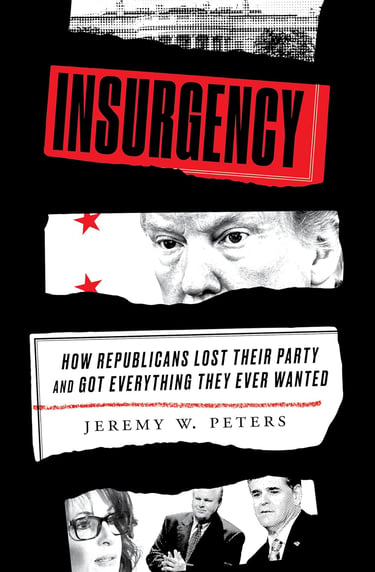

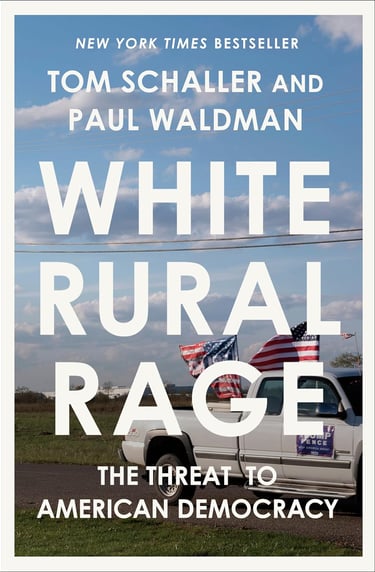

White Rural Rage by Tom Schaller and Paul Waldman - 2024
“The 2021 Delta wave’s geographic effects were predictable and tragic. Despite a huge geographic head start, rural counties managed to match and then eclipse the death rates in urban counties; by mid-2022, in fact the cumulative death rate of 401.9 per 100,000 people in rural areas was 37 percent higher than the 293.1 rate in urban areas. Most of these surplus rural deaths were avoidable. And West Virginia, the state Donald Trump boasted of being the last to have an official Covid-19 case? By May 2023, it ranked second nationally in per-capita deaths, with 454 for every 100,000 citizens, barely behind Arizona’s rate of 456. Put simply, in just two years, West Virginia fell from first to worst. Conspiracists claim that hospitals exaggerated Covid-19 deaths rates by counting persons who died with the virus as having died from it. Comorbidities contribute to Covid-19 fatalities, of course. But there is no evidence that hospitals lied about coronavirus-caused deaths. In fact, Covid-19 deaths were most likely undercounted, by some estimates as much as 36 percent. The most lethal co-morbidity - one never reported on a single death certificate - was the refusal to get a free, safe vaccine. The stubborn, conspiratorial-minded rejection of vaccine science was not confined to rural White communities, but it was most prevalent there. Perhaps the most painful irony is that the rural White electorate, who voted for Donald Trump at even higher rates in 2020 than in 2016, were a specific target group for Joe Biden’s Covid-19 vaccine policy. After a year of President Trump peddling snake oil solutions like ivermectin and hydroxychloroquine, his successor’s vaccine campaign was almost certain to be greeted with skepticism by many rural citizens. Recognizing this obstacle, the Biden administration made rural communities a priority target for vaccines. Biden’s program deployed and funded faith-based groups and other organizations with rural credentials like the National Milk Producers Federation to persuade wary, misinformed rural voters to get vaccinated. The excess coronavirus deaths in rural counties should be classified as suicide by scientific skepticism. By rejecting proven vaccines, conspiracy-addled rural Americans, though living in communities where social distancing was easier than in densely populated cities, squandered their geographic advantage.”
“As political theorist Corey Robin wrote in his book The Reactionary Mind, from its beginnings, conservatism was at its heart about ‘the felt experience of having power, seeing it threatened, and trying to win it back.’ As much as Republicans worried in 2016 that he might not be a ‘real’ conservative, in this sense Trump was the truest conservative of them all. He promised a restoration, a rollback, a reversion to a prior age, when the right people were atop society’s hierarchy and everyone else knew their place. Trump never specified when this lost period of American greatness was. Some might have said the 1950s, but for many, the time of greatness came down to ‘when I was younger.’ That’s when the world was simple, when things made sense, when you felt like anything was possible and you were the hero of your story. If you’re a middle-aged man who lacks the economic security you feel you deserve, and the country is changing and you feel alienated from popular culture, the idea that America might revert to the time when you were at your peak sounds awfully appealing. For those men, watching liberals celebrate all the social changes that caused them distress was particularly galling. Then along came Trump, who said nothing in America worked anymore, that we had been made into a bunch of losers, that we were living in an absolute hellhole, and that the only way to drag ourselves out was to turn back the clock.”
“Taken together, these four factors compound in ways that increasingly cause rural White Americans to question their commitment to the American project. Rural White citizens who are suffering economically and facing major health crises may justifiably despair of the situation they and their communities face. Armed with outside electoral and mythic powers, they can, in theory, call local, states, and national politicians to heel. Unfortunately, too often rural Whites are pacified by culture war trinkets sold cheaply to them by the very politicians they elected and ought to be addressing in more substantive ways the economic and health-related maladies crippling so many small, sparsely populated towns and counties - thereby perpetuating the cycle of despair.”
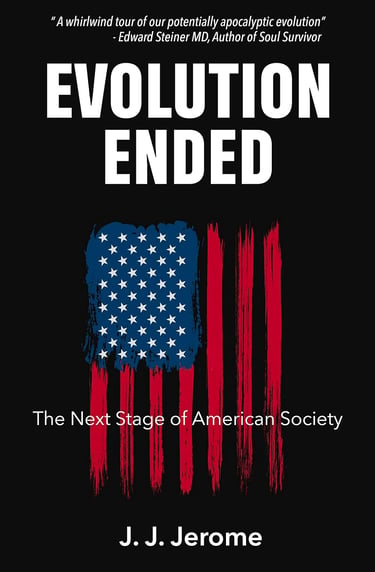

“But Donald’s ultimate secret weapon was Twitter. During the campaign, he tweeted multiple times each day. Everytime his followers read his tweets, their brains would produce instant shots of oxytocin and dopamine, feel-good hormones that stimulated their pleasure centers and made them feel that the message was true. The content of the message was irrelevant because the dopamine reduced the desire to analyze the statement. During his campaign, his followers would get approximately 15 tweets per day, and each tweet would produce a rush of hormones. During his presidency, Donald Trump posted 26,237 tweets. When you stimulate someone’s pleasure centers many times a day - they get addicted! Just like a smoker or drug addict, overstimulation of the pleasure centers disables the mechanism of logical thought. They will do anything to get their fix, including rationalizing a lot of really bad behavior. So, in many ways, hardcore Trump supporters actually become addicted to the cult of ‘The Donald.’ As Trump himself said in 2016, ‘I could stand in the middle of 5th Avenue and shoot somebody and not lose any supporters.’”
Evolution Ended by J.J. Jerome - 2022
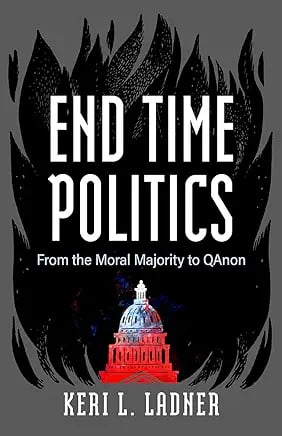

End Time Politics by Keri L. Ladner - 2024
"Long before the first Q drop, more Americans than we realize already believed that Satan-worshipping pedophiles were ritually abusing and murdering children, again despite zero evidence to support the claim (or to support the numerous court cases and prison sentences that emerged out of the Satanic Panic), Falwell helped develop this conspiracy theory so that it included the Clintons; though Falwell’s Clinton conspiracy never hit the mainstream in the 1990s, they never disappeared. Instead, they continued growing and evolving on the margins of the far right, so that they eventually gave rise to QAnon. People were ready to believe QAnon because they already believed the central conspiracy theory for years, if not decades, before Trump’s election: that Hillary Clinton is a leader in a global ring of Satan-worshipping pedophiles. In the months leading up to the 2020 election between Donald Trump and Joe Biden, QAnon surged in popularity, owing largely to supporters’ focus on child trafficking and pedophilia. #SaveOurChildren – a slogan that had been used in the 1970s to defeat legislation aimed at providing equal rights to queer individuals– dominated social media, including from people who had never even heard of QAnon or the cabal of Satanists who were sacrificing children in ritual abuse. . . And then the unthinkable happened when Biden defeated Trump in the 2020 election. Prophecies had predicted that Trump would remain in office to continue dismantling the Satan-worshipping child-trafficking cabal, yet he lost. As with Falwell’s prophecies about the End Times, QAnon political prophecy is very malleable and able to adjust; in this case QAnon followers subscribed to Trump’s claim that Biden had stolen the election. Surely this election theft must have been the doings of the very cabal that Trump had been working to destroy; his loss soon became seen as evidence of the cabal. And there was a greater prophecy that followers could put faith in: the storm. Not only would Trump publicly arrest the thousands of child traffickers involved in the cabal, but the nation’s rightful leaders– including Trump himself– would be restored to power."
"The political prophecies about Hillary and the storm were perhaps distant relatives of the End Times prophecy that Falwell had promoted in geopolitical terms. These prophecies were from an authority– for Falwell, from the Bible, for QAnon believers, from Q– and would be fulfilled in the world of politics, either through the geopolitics of the Cold War or through the politicking that goes on in Washington. The faith of believers, a faith that became less and less biblical as it became more and more political, was shaped around these prophecies. Despite being mostly underground rather than in the public eye for the first couple of years, QAnon grew at an exponential rate. Concerned ‘patriots’ as they tended to consider themselves, regularly shared videos on YouTube and networked with other ‘patriots’ to interpret the messages from Q that came to be known as ‘Q drops.’ And then in December of 2019, a news story came out of China, saying that a new form of pneumonia was killing patients and that officials were locking down entire cities to contain the spread of this illness. The culprit was a novel virus known as Covid-19, and by the middle of March 2020, most of the world would be on lock-down. With movie theaters, restaurants, and playgrounds closed, many Americans spent their extra time on the internet, where they found a movement of people committed to ending pedophilia and child trafficking. ‘Patriotism’ became a code word for becoming part of this growing movement, and in the conspiratorial mindset of QAnon, the pandemic was nothing more than a cover-up for those who wanted to continue trafficking children so they could sacrifice them to the devil."